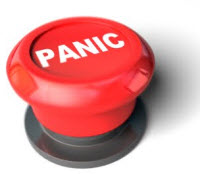Weight Loss and Mood Improvement
Many obese individuals participating in weight reduction programs which emphasize exercise and lifestyle modifications see an improvement in their depression, according to a new review published in February in the International Journal of Obesity. The weight loss programs varied, and included diet-only, exercise-only, and programs emphasizing counseling and behavioral change. Some participants also took medication to assist their weight loss, while others received no treatment. The studies included approximately 8000 folks. As a whole, those in almost every type of [...]









